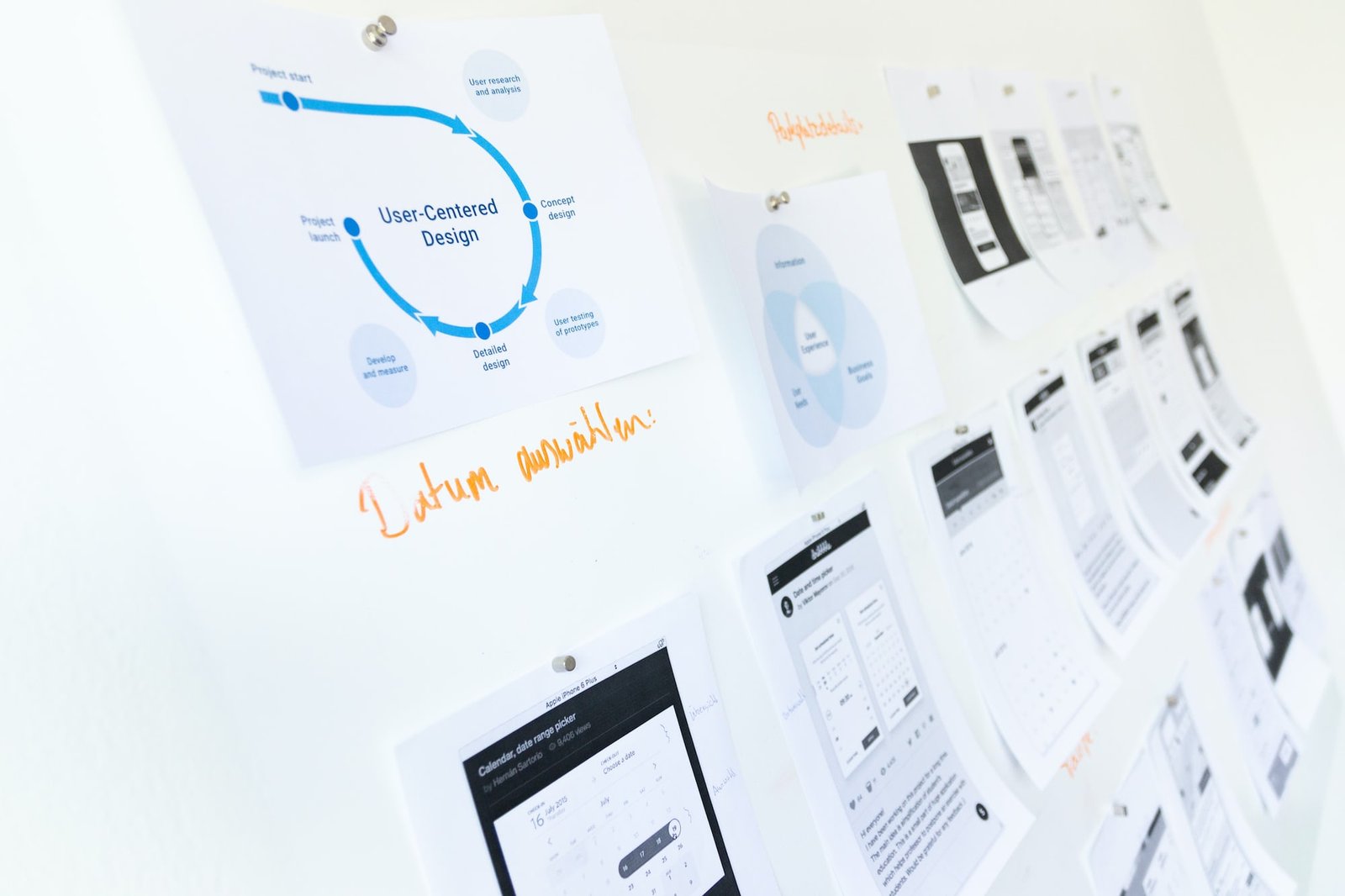The Efficient WordPress to HTML Converter: Simplifying Website Transitions

Hey there, small business owners and fellow WordPress enthusiasts! If you’re on this page, chances are you’re looking for an efficient solution to simplify the transition of your website from WordPress to HTML. Well, you’re in luck because today we’re diving into the world of WordPress to HTML converters and how they can make your life easier.
As a professional website designer specializing in WordPress solutions for small businesses, I understand the importance of seamless website transitions. Moving your website from the WordPress platform to HTML can be a daunting task, especially if you’re not familiar with coding or don’t have the time to manually convert each page. That’s where WordPress to HTML converters come to the rescue!
In this blog post, we’ll explore everything you need to know about WordPress to HTML converters, how they work, their benefits, and the top converters available in the market. So, let’s get started and simplify your website transition process!
Table of Contents
- What is a WordPress to HTML Converter?
- How Does a WordPress to HTML Converter Work?
- Benefits of Using a WordPress to HTML Converter
- Time-saving
- Cost-effective
- User-friendly
- SEO-friendly
- Customization options
- Top WordPress to HTML Converters
- Converter X
- HTMLify
- WP Static HTML Output
- Simply Static
- Choosing the Right WordPress to HTML Converter for Your Business
- Compatibility with your WordPress theme
- Ease of use
- Conversion accuracy
- Additional features
- Frequently Asked Questions (FAQ)
- Conclusion
1. What is a WordPress to HTML Converter?
A WordPress to HTML converter is a tool or software that automates the process of converting a WordPress website into static HTML files. It takes your dynamic WordPress site, which relies on PHP and a database, and transforms it into a static HTML version that can be hosted on any server without the need for PHP or a database.
By converting your WordPress site to HTML, you eliminate the need for server-side processing, making your website faster and more secure. Additionally, HTML files are easier to manage and can be hosted on any server, giving you more flexibility in choosing a hosting provider.
2. How Does a WordPress to HTML Converter Work?
WordPress to HTML converters work by crawling your WordPress site and retrieving all the necessary files, including HTML, CSS, JavaScript, images, and other assets. They then generate static HTML files by replacing dynamic elements with static content.
The conversion process typically involves stripping out PHP code, database queries, and any other dynamic elements that require server-side processing. The resulting HTML files can be easily uploaded to any server and accessed by visitors without the need for a database or PHP support.
3. Benefits of Using a WordPress to HTML Converter
Using a WordPress to HTML converter offers several benefits that can greatly simplify your website transition process. Let’s take a closer look at some of these benefits:
Time-saving
Manually converting a WordPress site to HTML can be a time-consuming task, especially if you have a large website with multiple pages. WordPress to HTML converters automate this process, saving you valuable time that can be better spent on other aspects of your business.
Cost-effective
Hiring a developer to manually convert your WordPress site to HTML can be expensive. WordPress to HTML converters provide a cost-effective alternative, allowing you to convert your website at a fraction of the cost.
User-friendly
You don’t need to be a coding expert to use a WordPress to HTML converter. Most converters come with a user-friendly interface and intuitive controls, making the conversion process accessible to users of all skill levels.
SEO-friendly
Static HTML websites are inherently more SEO-friendly than dynamic WordPress sites. By converting your website to HTML, you optimize it for search engines, potentially improving your organic search rankings and driving more traffic to your site.
Customization options
Contrary to popular belief, converting your WordPress site to HTML doesn’t mean sacrificing customization options. Many WordPress to HTML converters allow you to retain the design and functionality of your website while still benefiting from the advantages of static HTML.
Now that we’ve explored the benefits of using a WordPress to HTML converter, let’s take a look at some of the top converters available in the market.
4. Top WordPress to HTML Converters
With a plethora of WordPress to HTML converters available, it can be overwhelming to choose the right one for your business. To help you make an informed decision, here are four of the top converters in the market:
Converter X
- Cost: $49
- Key Features:
- Drag-and-drop interface for easy conversion
- Batch conversion of multiple WordPress sites
- Retains website design and functionality
- SEO optimization options
- Pros:
- Intuitive interface makes it accessible to users of all skill levels
- Fast and efficient conversion process
- Excellent customer support
- Cons:
- Limited customization options
HTMLify
- Cost: Free with premium add-ons available
- Key Features:
- One-click WordPress to HTML conversion
- Retains website design, content, and functionality
- Advanced caching for faster page load times
- SEO optimization options
- Pros:
- Easy to use with minimal setup required
- Excellent performance optimization features
- Option to purchase premium add-ons for additional functionality
- Cons:
- Limited customization options without premium add-ons
WP Static HTML Output
- Cost: Free with premium version available
- Key Features:
- Seamless integration with WordPress dashboard
- Customizable conversion settings
- Automatic deployment to various hosting platforms
- Advanced caching and optimization options
- Pros:
- Comprehensive customization options
- Automatic deployment saves time and effort
- Regular updates and excellent customer support
- Cons:
- Some advanced features are only available in the premium version
Simply Static
- Cost: Free with premium add-on available
- Key Features:
- Single-click WordPress to HTML conversion
- Support for custom post types and taxonomies
- Advanced caching and optimization options
- Seamless integration with WordPress dashboard
- Pros:
- Easy to use with minimal setup required
- Excellent performance optimization features
- Option to purchase premium add-on for additional functionality
- Cons:
- Limited customization options without premium add-on
5. Choosing the Right WordPress to HTML Converter for Your Business
When choosing a WordPress to HTML converter for your business, it’s important to consider several factors to ensure a smooth transition. Here are some key factors to keep in mind:
Compatibility with your WordPress theme
Not all WordPress to HTML converters are compatible with every WordPress theme. Before making a decision, ensure that the converter you choose supports your theme and its associated plugins.
Ease of use
Consider the user-friendliness of the converter’s interface. Look for drag-and-drop functionality or one-click conversion options that simplify the process for users of all skill levels.
Conversion accuracy
Check customer reviews and testimonials to gauge the accuracy of the converter’s conversion process. Look for converters that retain the design, content, and functionality of your WordPress site.
Additional features
Consider any additional features or functionalities offered by the converter. Look for options such as SEO optimization, caching, and automatic deployment to further enhance your website’s performance.
Now that you have a better understanding of the top WordPress to HTML converters and the factors to consider when choosing one, let’s address some frequently asked questions.
6. Frequently Asked Questions (FAQ)
Q1: Will converting my WordPress site to HTML affect my search engine rankings?
A: When done correctly, converting your WordPress site to HTML can actually improve your search engine rankings. HTML websites are typically faster, more lightweight, and easier for search engines to crawl and index.
Q2: Can I still update my website after converting it to HTML?
A: Yes, you can still update your website after converting it to HTML. However, you’ll need to make changes manually by editing the HTML files. Alternatively, you can use a content management system (CMS) that works with HTML files to make updates easier.
Q3: Can I revert back to WordPress after converting to HTML?
A: Converting your WordPress site to HTML is a one-way process. Once you’ve converted it, you cannot revert back to WordPress without rebuilding your website from scratch.
Q4: Do I need any coding skills to use a WordPress to HTML converter?
A: While coding skills are not necessary, some basic knowledge of WordPress and HTML can be helpful when using a WordPress to HTML converter. However, most converters come with user-friendly interfaces that require little to no coding knowledge.
7. Conclusion
Transitioning your website from WordPress to HTML doesn’t have to be a daunting task. With the help of WordPress to HTML converters, you can simplify the process and enjoy the benefits of a faster, more secure, and SEO-friendly website.
In this blog post, we explored the world of WordPress to HTML converters, their benefits, and the top converters available in the market. We also discussed the factors to consider when choosing the right converter for your business.
So, go ahead and take the leap to HTML! Choose the WordPress to HTML converter that suits your needs, bid farewell to the complexities of dynamic websites, and say hello to a simplified website transition process. Good luck!


